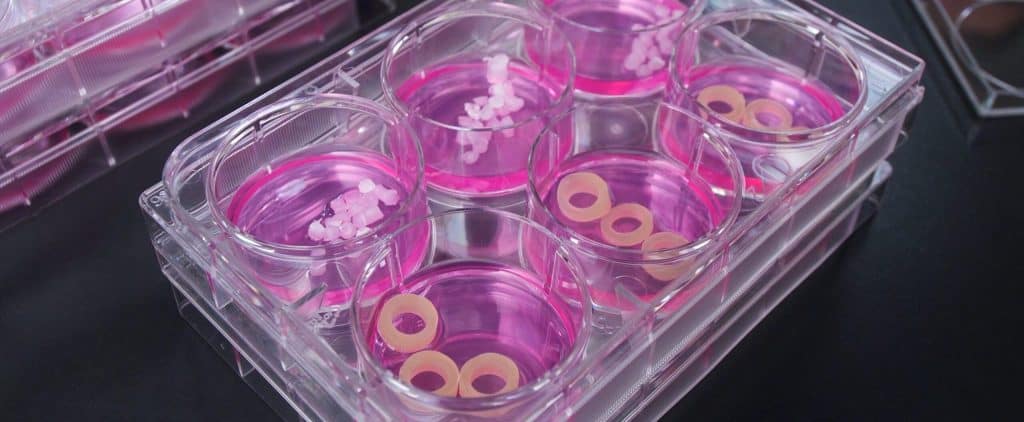
What is Cytotoxicity Testing?
The Cytotoxicity Test is designed to evaluate the general toxicity of medical devices and materials. Testing involves extracting devices in a cell culture media and then exposing the extract fluid to mouse fibroblast cells (L929). The cells are allowed to grow in the extract fluid for a specified amount of time before the cells are evaluated using either qualitative or quantitative methods. The test is performed on all medical devices with patient contact, raw materials, and devices undergoing a cleaning validation or residual manufacturing.
Download the biocompatibility test matrix. [Based on ISO 10993-1:2010 (E) and FDA “Use of international standard ISO 10993-1”]
Applicable Standards
- ANSI/AAMI/ISO 10993-5
- ANSI/AAMI/ISO 10993-12
Study Outline for Cytotoxicity/MEM/Agar Overlay
MEM Elution
Devices/materials are generally extracted in serum-supplemented mammalian cell culture media (MEM) 37 ± 1ºC. After extraction, the extracts are placed in contact with a monolayer of L-929 cells (mouse fibroblasts). The cells are then allowed to grow in the extraction fluid for a specified amount of time before the cells are evaluated using either qualitative or quantitative methods.
Qualitative
Qualitative evaluation involves observing the cells under a microscope and assigning a cytotoxic grade (0-4). The grade is based on an estimated percent lysis (death) and on the morphology (appearance) of the cells. Test materials pass the assay if the cytotoxic score is ≤ 2 (≤ 50% lysis).
Quantitative
Quantitative evaluation utilizes a tetrazolium dye which is used to assess the metabolic activity of cells. The results are reported as percent viability (% living cells). Test materials pass the assay if the percent viability if ≥ 70%. Multiple dilutions of the test article extract are generally included with each assay.
Agar Overlay
Materials are generally tested by surface area using at least 100 mm2 of material per well. Weight may also be used for liquids, gels, or powders using at least 100 mg per well. The material is placed on a layer of agarose that is placed on top of a monolayer of L-929 cells and incubated for 24 – 26 hours at 37 ± 1ºC in 5 ± 1% CO2. After incubation, the zone of cell destruction is measured and scored based on a 0 – 4 scale listed in AAMI/ANSI/ISO 10993-5. The material meets ISO requirements if the cytotoxic response is not greater than grade 2 (mildly reactive). Although Agar Overlay has been historically an accepted test method it may not be appropriate when submitting to certain regulatory bodies.
Cytotoxicity Failures
Occasionally, a device or material will exhibit a level of cytotoxic reactivity that is higher than what is allowed by the ANSI/AAMI/ISO 10993-5 standard and will result in a failed test. Although your product may have failed a cytotoxicity test, it does not necessarily mean that your device or material is unsafe for clinical use. It simply means that you are obligated to identify the source of failure and assess any toxicological risks.


